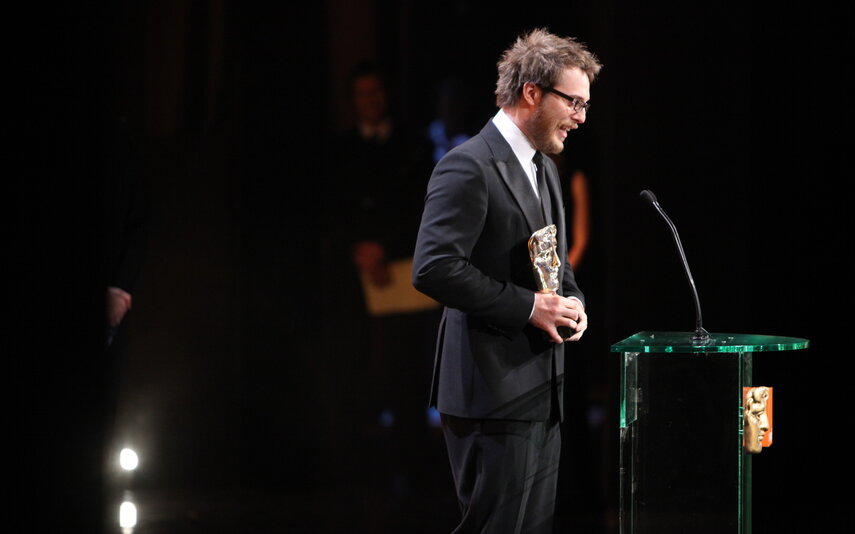
Duncan Jones: Interview
The director on his Hitchcockian sci-fi, Source Code, and winning an Outstanding Debut BAFTA in 2010.
Originally published in April 2011.
Words by Quentin Falk
Duncan Jones, director of the acclaimed Moon, appears to have come up with the perfect antidote to ‘second film syndrome.’
After almost indecently good reviews and a clutch of awards, including the BAFTA for Outstanding Debut, the director went on quickly to craft what’s already shaping up as one of 2011’s early blockbusters.
Source Code, a sort of ‘Bourne meets Groundhog Day’ with a sci-fi twist, is currently wowing audiences world-wide but its British-born director – the filmmaker formerly known as Zowie Bowie – seems far from blasé about it all.
Unlike Moon, which was a closely nurtured long collaboration with his writer (Nathan Parker), Jones was effectively a director-for-hire on Source Code, although, as he notes disarmingly, “under particularly unusual circumstances – maybe a bit different from some other directors who’ve jumped into the Hollywood fray.”
"My major hesitation was doing someone else's sci-fi script. Not to blow my own trumpet too much, but sci-fi kind of feels like my territory."
The project was already up and running with Jake Gyllenhaal on board to play the lead role of an army helicopter pilot mysteriously involved in a time-shifting new US Government experiment to try and avert a Chicago commuter train bomb.
It turns out that Gyllenhaal was a big fan of Moon and sought out Jones who, for his part, was a fan anyway, so was more than keen to work with the versatile young actor.
“After I read the script and told him what my thoughts were, what excited me about it and what I wanted to change, he was of the same mind, so we became a team very much from that point on.
“Was I concerned about going back into sci-fi? My major hesitation was doing someone else’s sci-fi. I didn’t have any qualms about doing someone’s else’s script but sci-fi, not to blow my own trumpet too much, kind of feels like my territory.
“There’s a real skill to getting the balance right between the necessities of exposition and the initial premise, and, at the same time, not make the audience feel like you’re trying to give them a lecture. It can be really tricky to get right. So to find somebody else’s script which I felt really did work was not something I was expecting.”
Jones claims Groundhog Day never came into conversations. “To be honest, no other films were mentioned. However there is an early scene in which Gyllenhaal sees another man’s face in the mirror, which I thought was straight out of the TV show Quantum Leap so I got QL’s Scott Bakula to come in and do a cameo for Jake’s dad’s voice. A little ‘tip of the hat’, if you like.
“However, if you take out the sci-fi conceit, it’s about an ordinary guy in extraordinary circumstances who finds himself sitting on a train across from a mysterious dame. That’s Hitchcock to me.”
If ever a film seemed to lend itself to computer game adaptation, then Source Code would seem to be it. No immediate plans, says Jones, while admitting he’s interested in that world and especially in the relationship between film and video games.
"You have no idea how much winning a BAFTA meant to me, a defining moment in my career."
Duncan Jones' top tip for aspiring filmmakers:
If you want to direct, write or act: find a team of people who want to do the other jobs and are as passionate. If you’re a director, find a writer, someone who wants to be a cinematographer, find someone who wants to be a producer – and they do exist out there. Once you get that core team, the momentum you get from a group of people who have the same vision is exponentially more likely to happen than trying to do it all on your own.
Duncan Jones won his BAFTA a week before shooting began on Source Code – watch his backstage winner’s interview by clicking this link.
